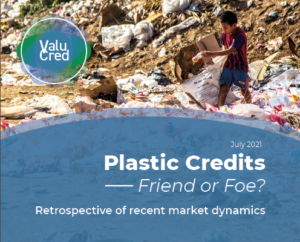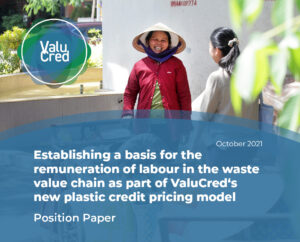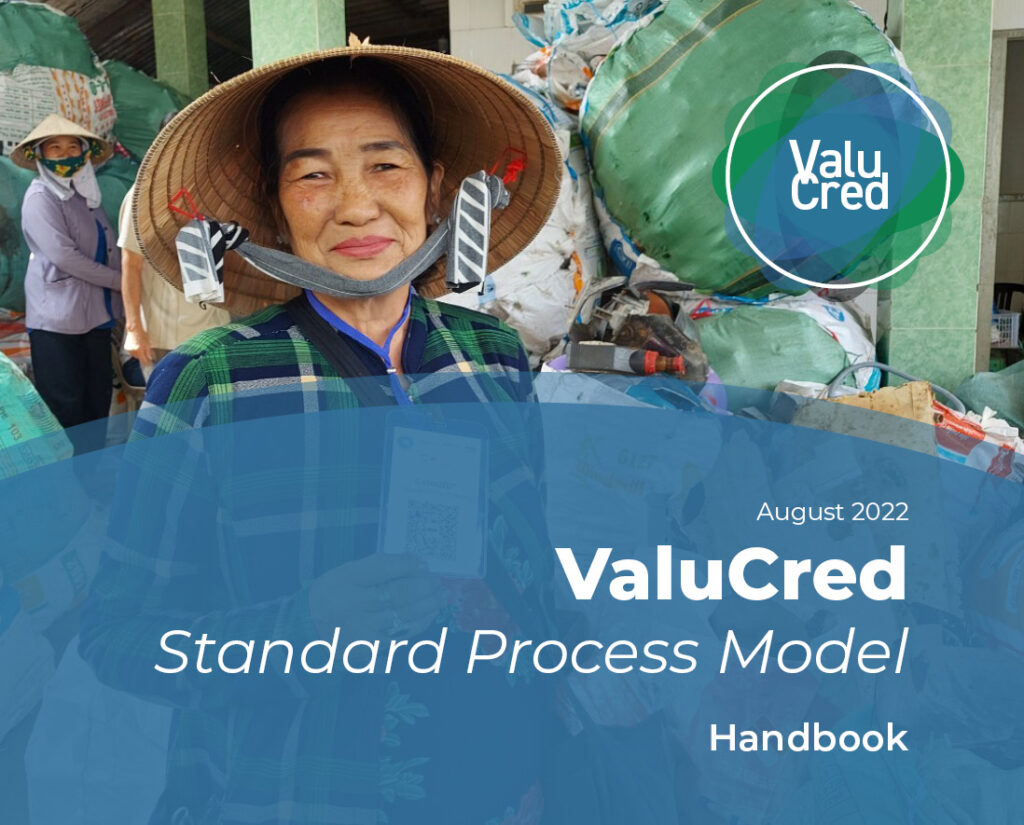Share this article
ValuCred: Inclusive and Transparent Circularity for the Plastic Value Chain
According to estimations of UNEP, 3.5 billion people do not have access to proper waste management services – this is nearly half of the world’s population.
Especially in low-income countries, the collection of recyclables depends almost entirely on the informal sector. Informal waste workers are amongst society’s most marginalised groups with no recognition of their valuable services, often being deprived of access to sustainable income sources and basic social services.

How can we make waste management and recycling inclusive, transparent, and sustainable?
Systematic improvements of waste collection and treatment services are urgently needed, which include the development of infrastructure and adequate remuneration for all workers along the waste value chain. Novel financing schemes such as plastic credits can serve as financial instruments to help disadvantaged countries fund these activities. However, for the transparent calculation and valorisation of plastic credits or other compensation schemes under voluntary extended producer responsibility (EPR), a more sophisticated and innovative approach is needed. Instead of transferring the operating principles of the CO2-emissions trading, ValuCred developed a standard process model (SPM) that can be replicated internationally and is supported by any digital solution for plastic waste data tracking. It aims to align the interests of global stakeholders and to promote the collaboration among existing initiatives for plastic credit or voluntary EPR markets. The ValuCred SPM is based on global best practices such as the ISO and the GRI standards, it incorporates the relevant metrics of the UN SDGs, and refers to and considers the relevant international regulatory framework as the Basel Convention and national Extended Producer Responsibility (EPR) schemes.
Program Outcomes
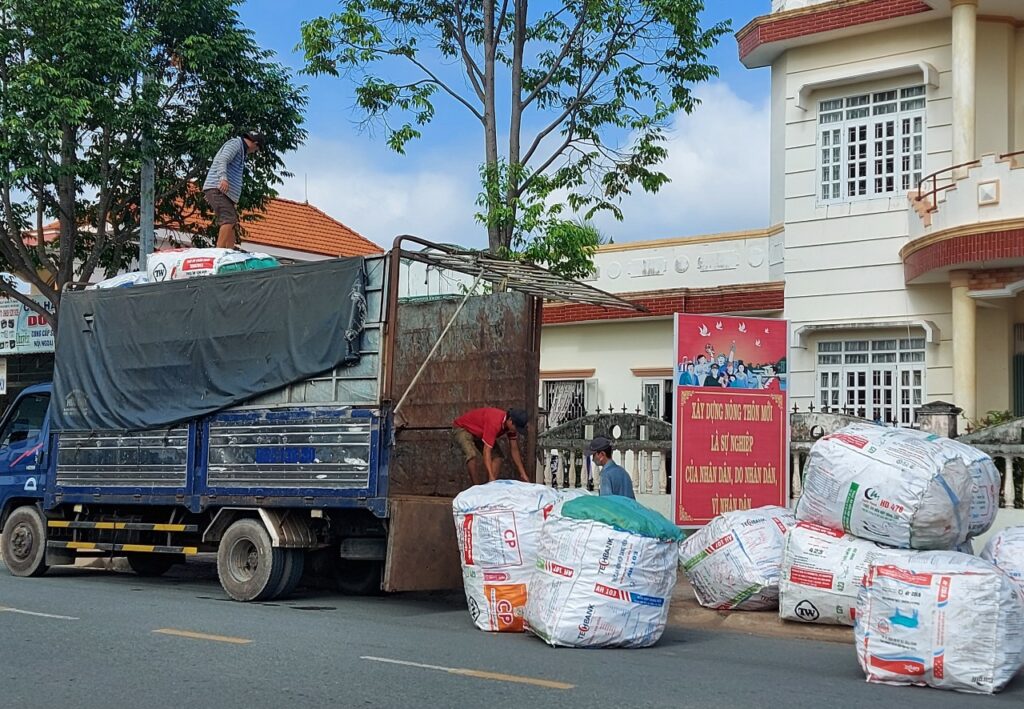
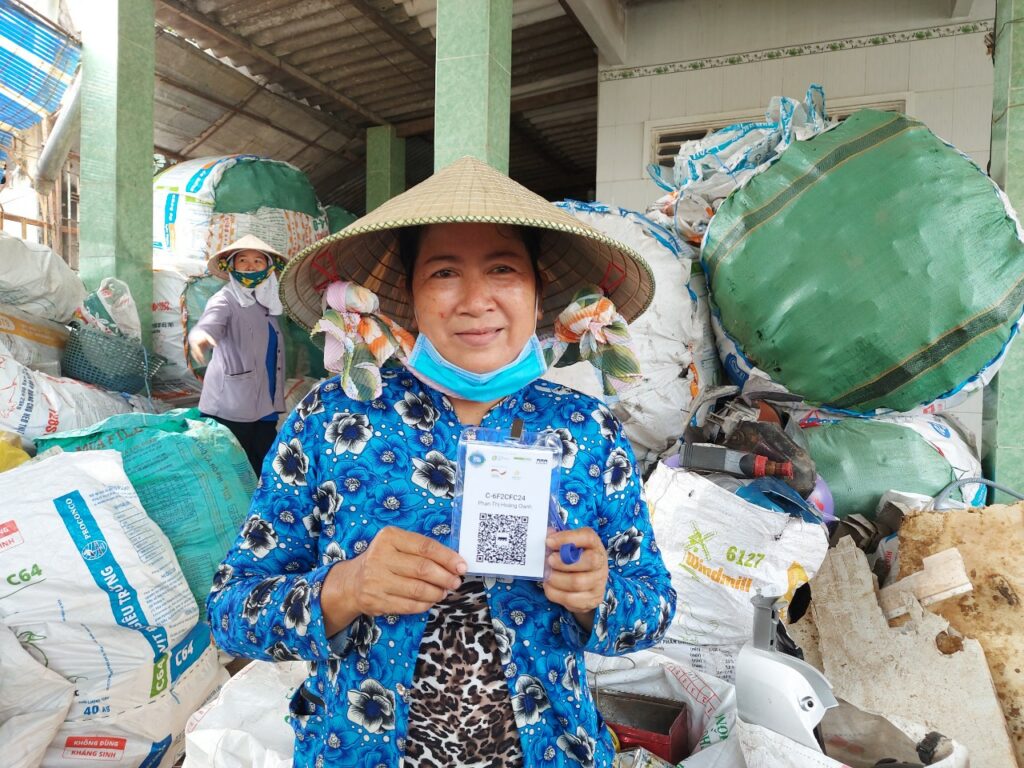
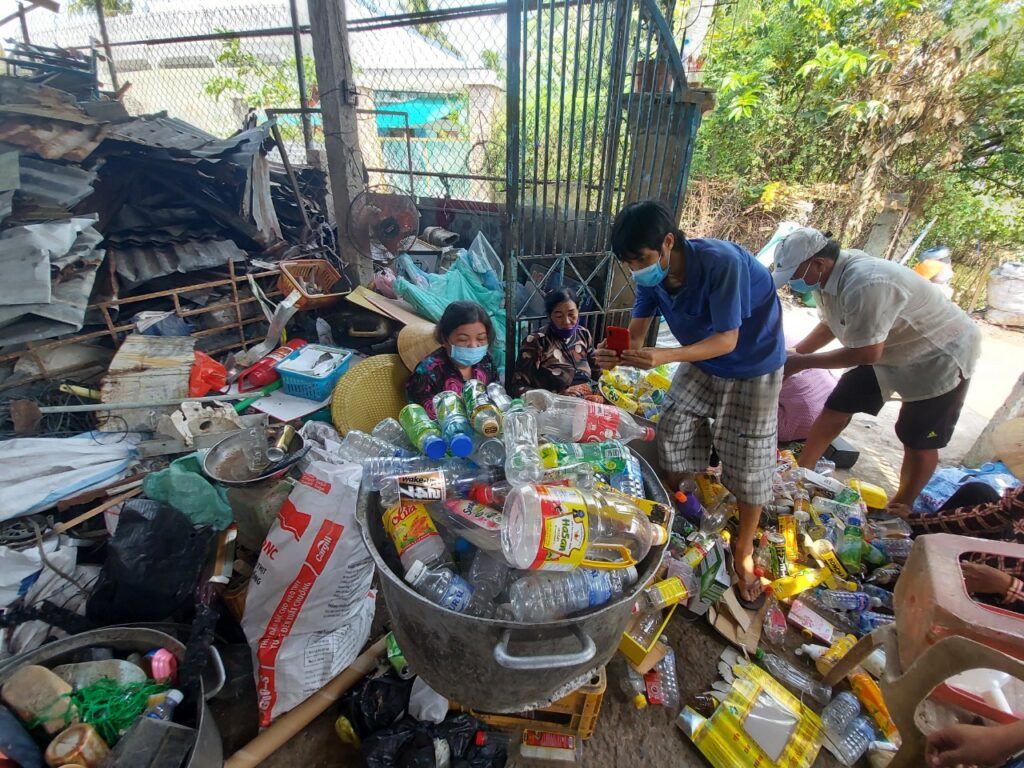
Friend or Foe: A Critical Study on the Plastic Credits Market
Based on extensive market research in 2021, we summarised the results of an analysis of different voluntary standards, and ValuCred‘s perspective on innovative impulses for the emerging plastic credit market. Most importantly, the report calls for a paradigm shift: the integration of aspects of social justice and transparency in the accounting mechanisms of plastic credits, a commonly agreed upon yet hardly implemented narrative. If implemented sustainably, plastic credits could have the potential to serve as a financial instrument to provide a lasting source of income for low-income groups such as informal waste workers in developing countries. Whilst it is a noble goal to “end poverty”, our target must be more ambitious: to “ensure living wages” for all. For further reading you can download the report below.
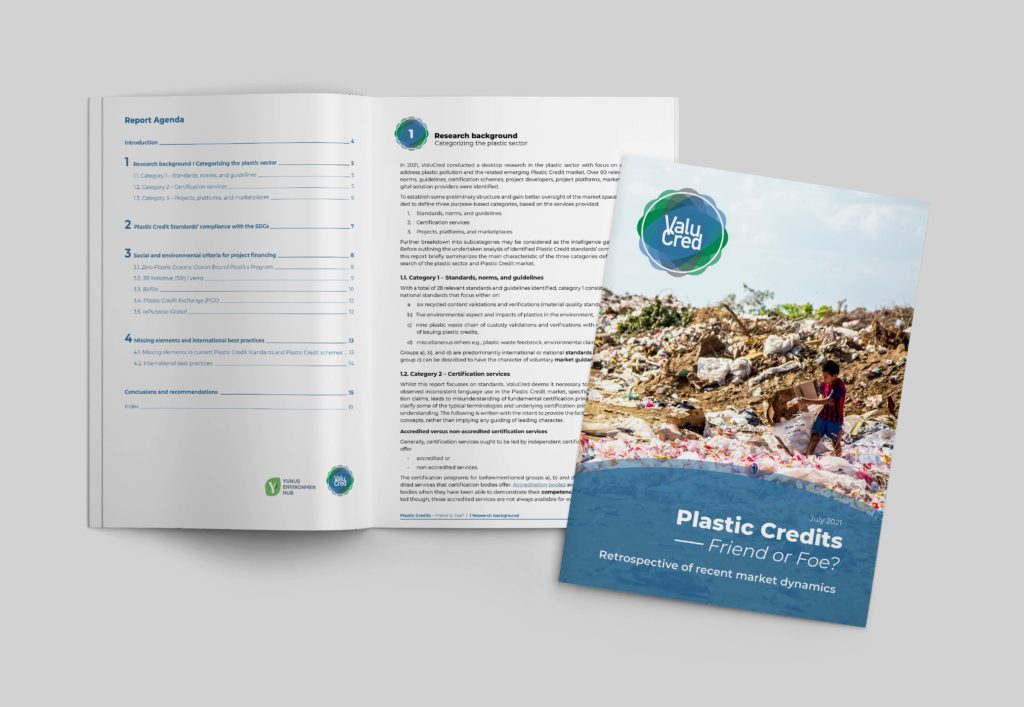
“Plastic Credits – Friend or Foe? Retrospective of recent market dynamics“.
Together with our partners, we also published a research paper on establishing a basis for the remuneration of labour in the waste value chain as part of ValuCred‘s new plastic credit pricing model.
The Standard Process Model (SPM) – an applicable blueprint for organisations to implement plastic credit schemes
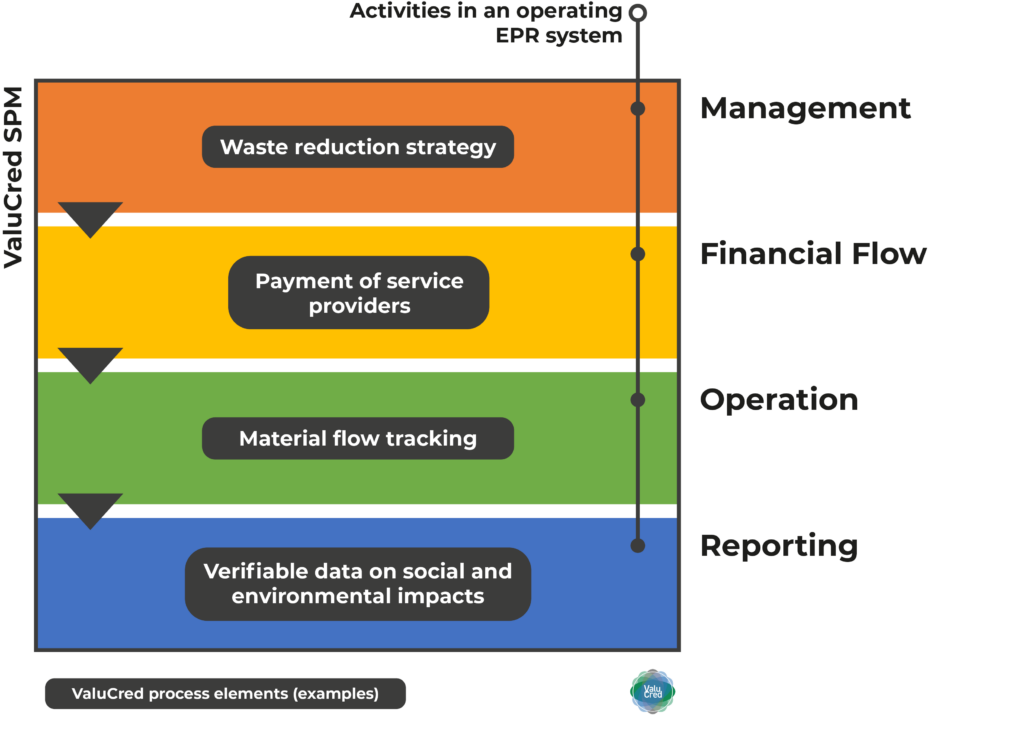
The ValuCred SPM incorporates the relevant metrics and indicators of the United Nation’s Sustainable Development Goals (SDGs) and refers to relevant international regulatory frameworks such as the Basel Convention.
Furthermore, the SPM incorporates the High-Level Structure (HLS) of ISO management systems such as ISO 9001 and ISO 14001. The incorporation of relevant GRI standard allows a full integration of the SPM into a company’s core business operations and management systems already established in the company.
The ValuCred Handbook introduces the key concepts of the Standard Process Model (SPM). It explains guiding principles for the integration of minimum requirements for the plastic credit market to foster greater transparency and accountability for all stakeholders involved.
Applying the ValuCred Standard Process Model (SPM) and its digital interface leads to ESG-relevant data collection. The ValuCred reporting structure is shown in an Exemplary ESG-Report of a Service Provider.
The ValuCred Standard Process Model is visualized in flow charts to show the logical and temporal sequence of the process steps: Overall Flow Chart (for both brands and service providers); Flow Chart for Brands; Flow Chart for Service Providers.
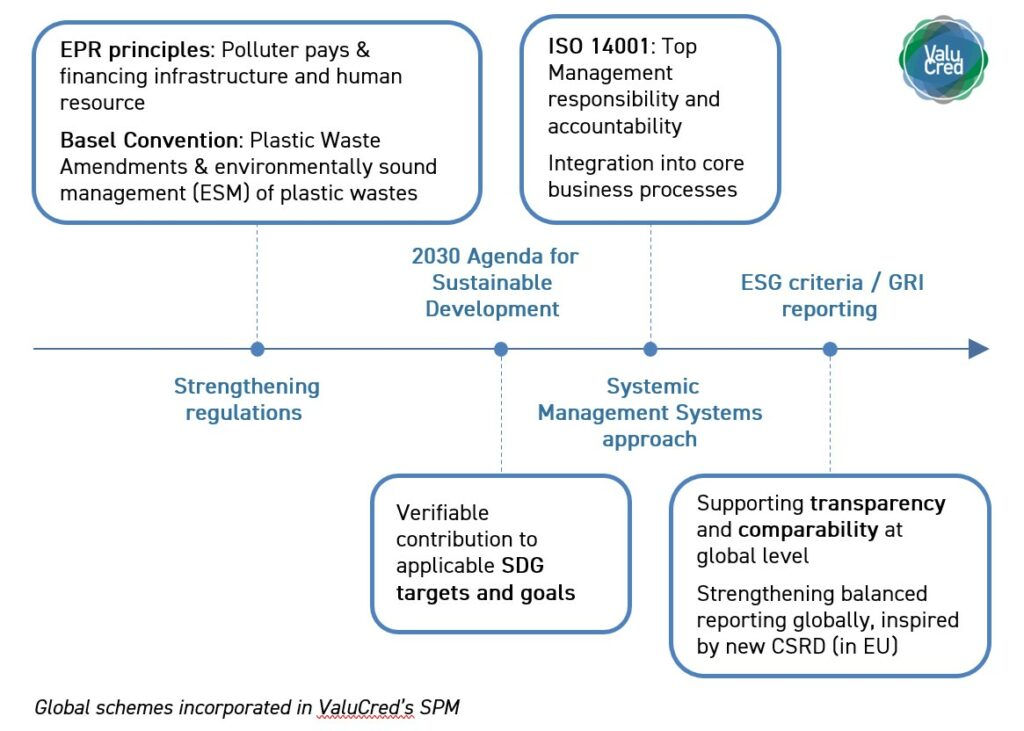
ValuCred‘s Pilot Testing
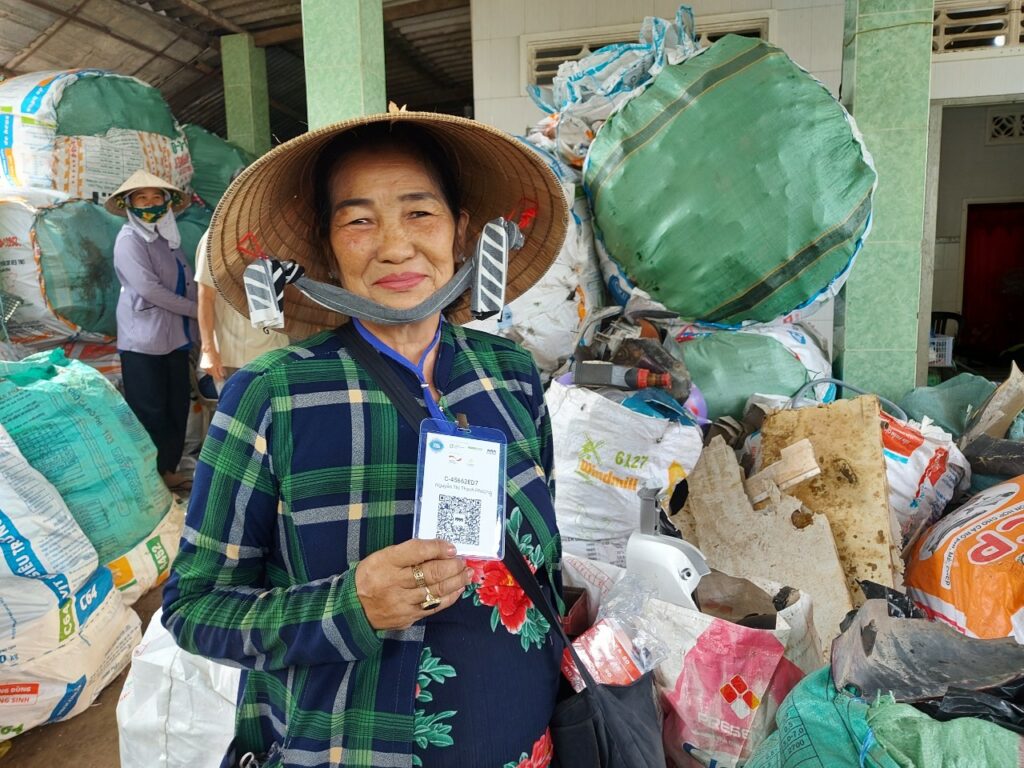
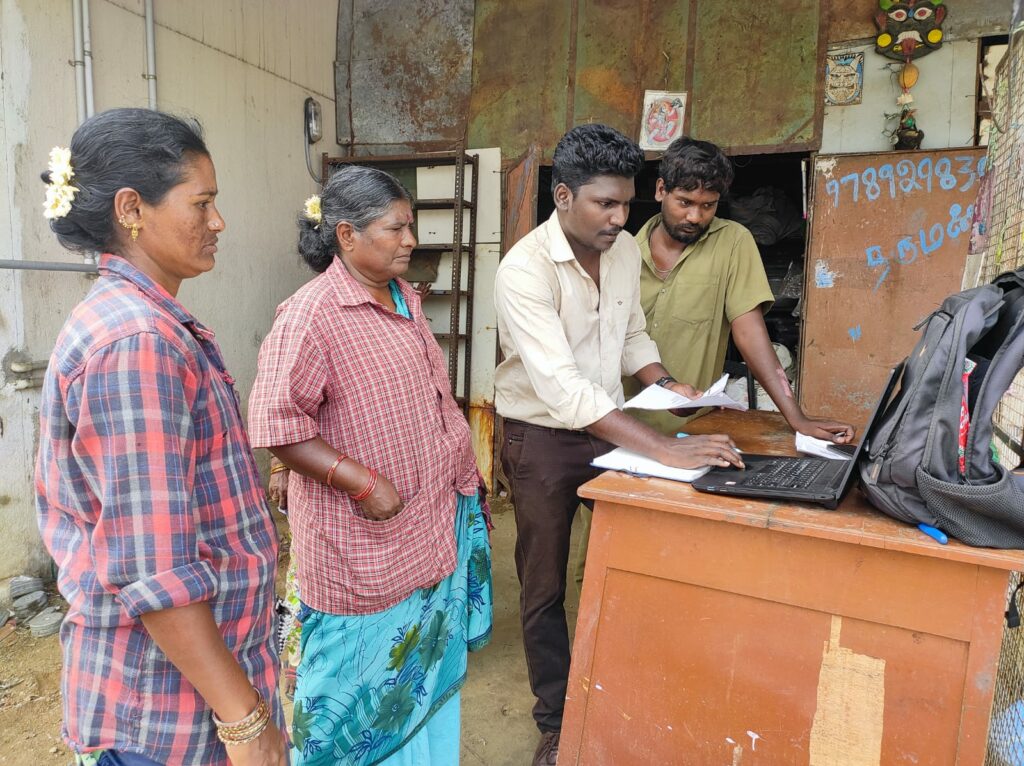
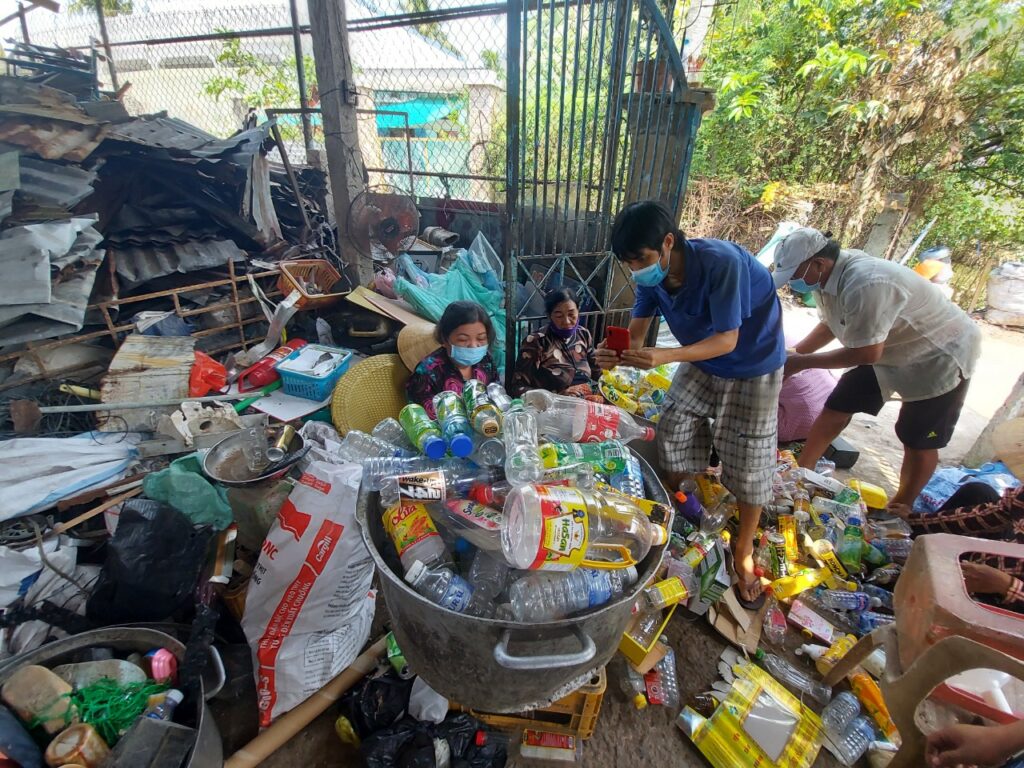
ValuCred’s SPM was tested over 6 months with service providers i.e. waste collectors and waste aggregators in 4 countries – namely Angola, Ghana, India, and Vietnam – to validate its applicability in different geographic contexts, the user-friendliness and gather feedback to iteratively improve the model. The following key lessons were learnt:
Key Lessons Learnt
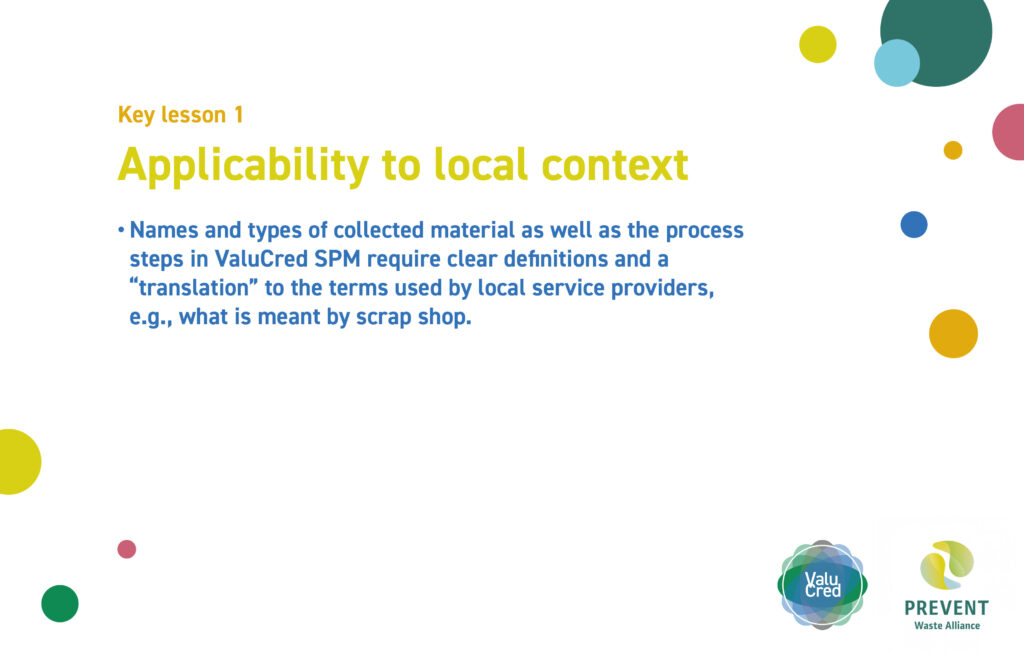
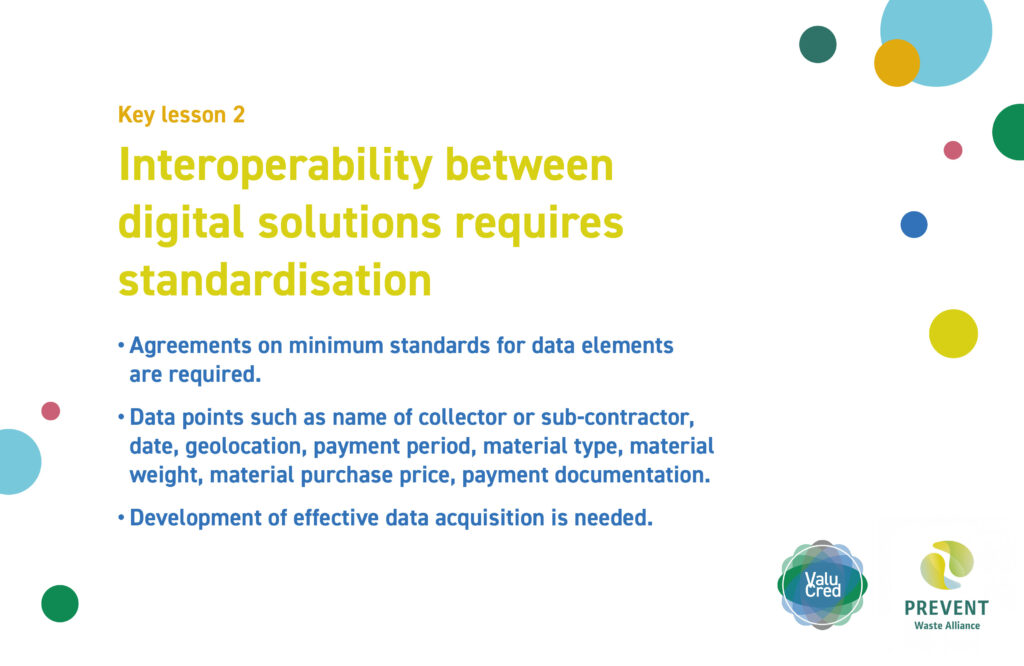
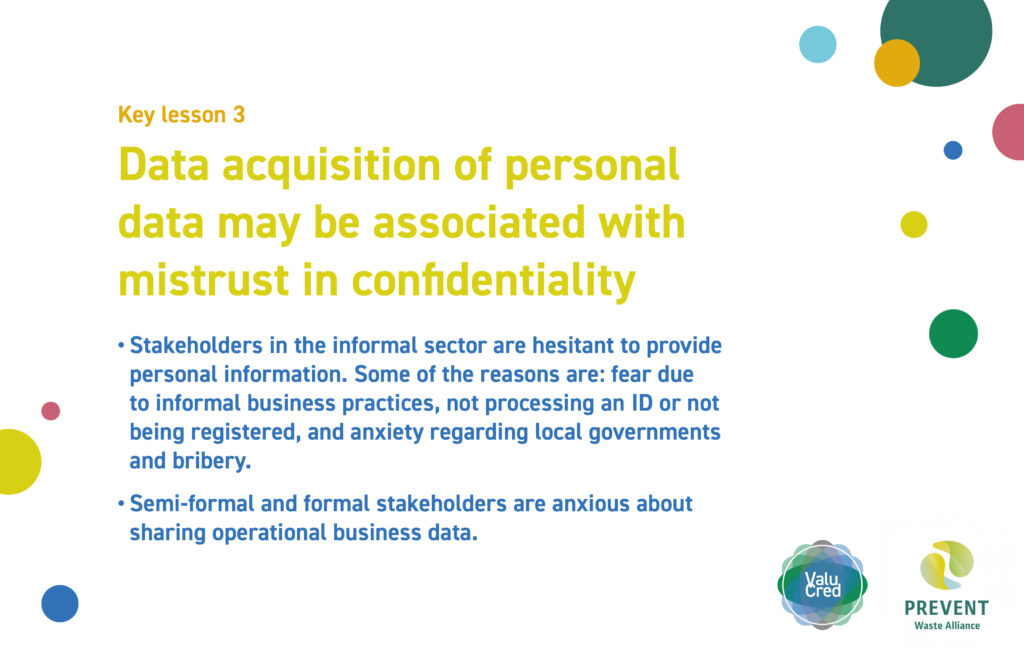
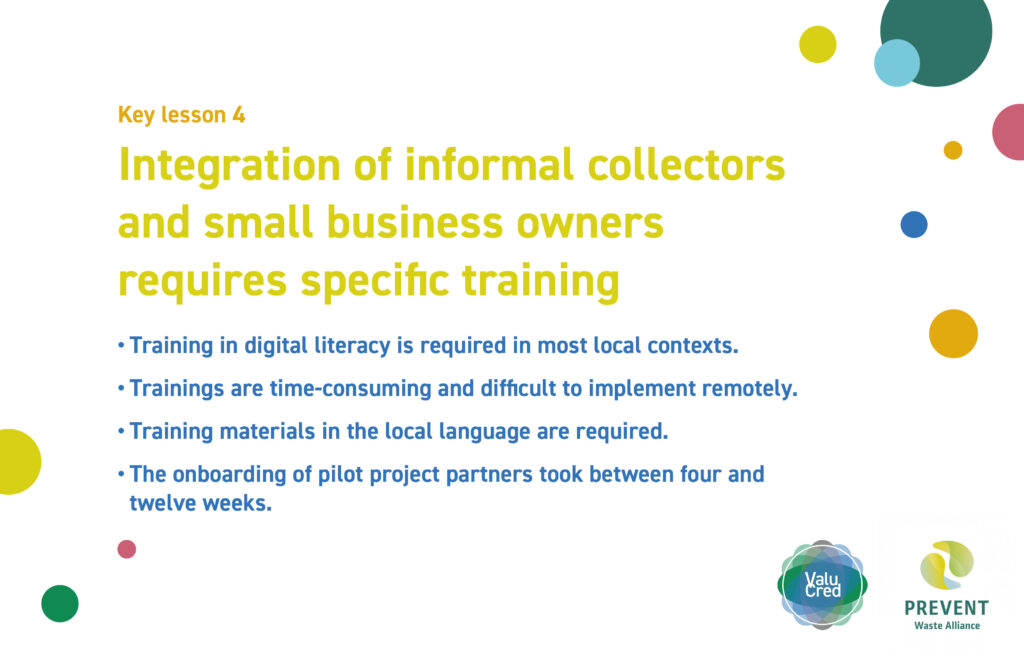
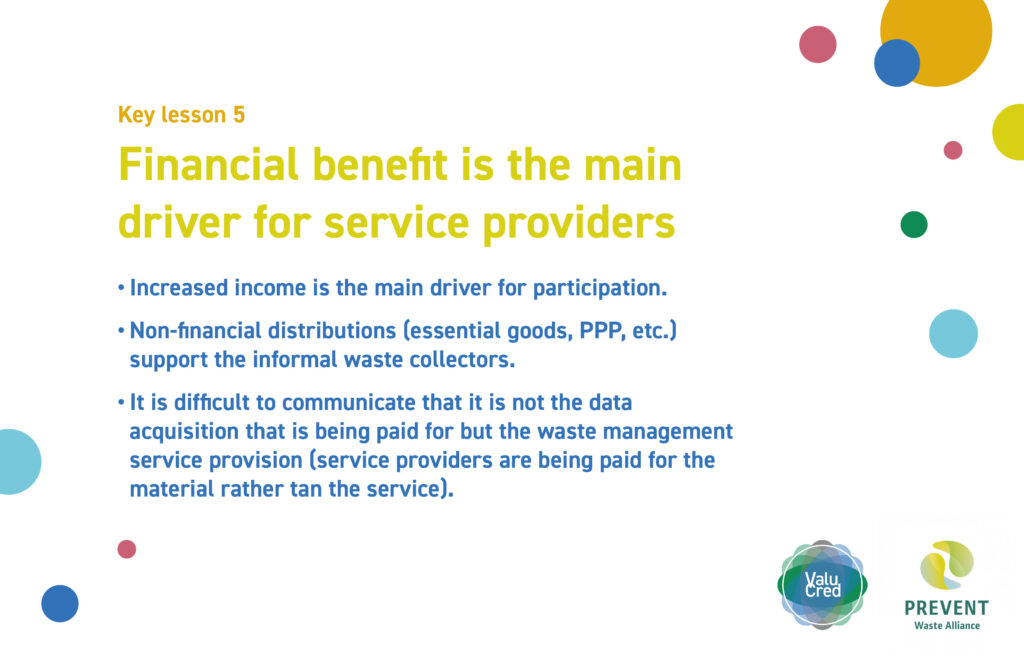
Watch the recording of the Circular Solutions Festival of the PREVENT Waste Alliance, which took place from 12-14 September 2022, where we presented the project outcomes and key lessons learnt.
If you are interested in collaborating on the topic of socially inclusive plastic value chains please contact valucred@yunuseh.com
In addition to our work for ValuCred, we have conducted a research study on the risks and opportunities of plastic credits for the informal sector in South-East Asia on behalf of UNEP. We are offering consulting and project development services around the topic of EPR implementation and training in the plastic waste value chain in countries with EPR systems under development.
ValuCred is a consortium led by Yunus Environment Hub, Nehlsen & Rodiek, and BlackForestSolutions, for the design and financing of sustainable plastic waste management systems. ValuCred is one of the first projects promoted by PREVENT Waste Alliance, with funding from the German Federal Ministry for Economic Cooperation and Development (BMZ) and the Röchling Stiftung.
